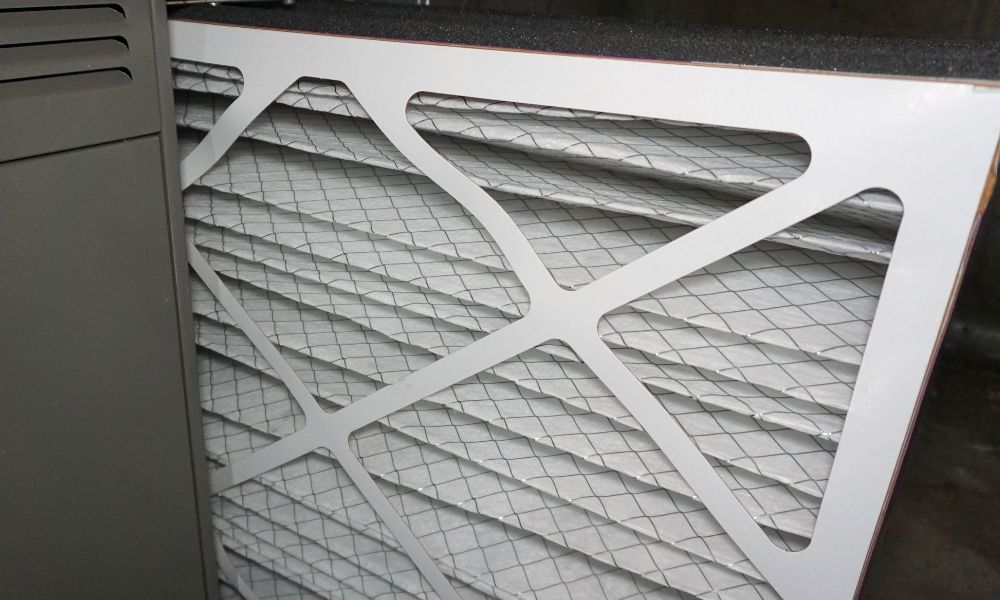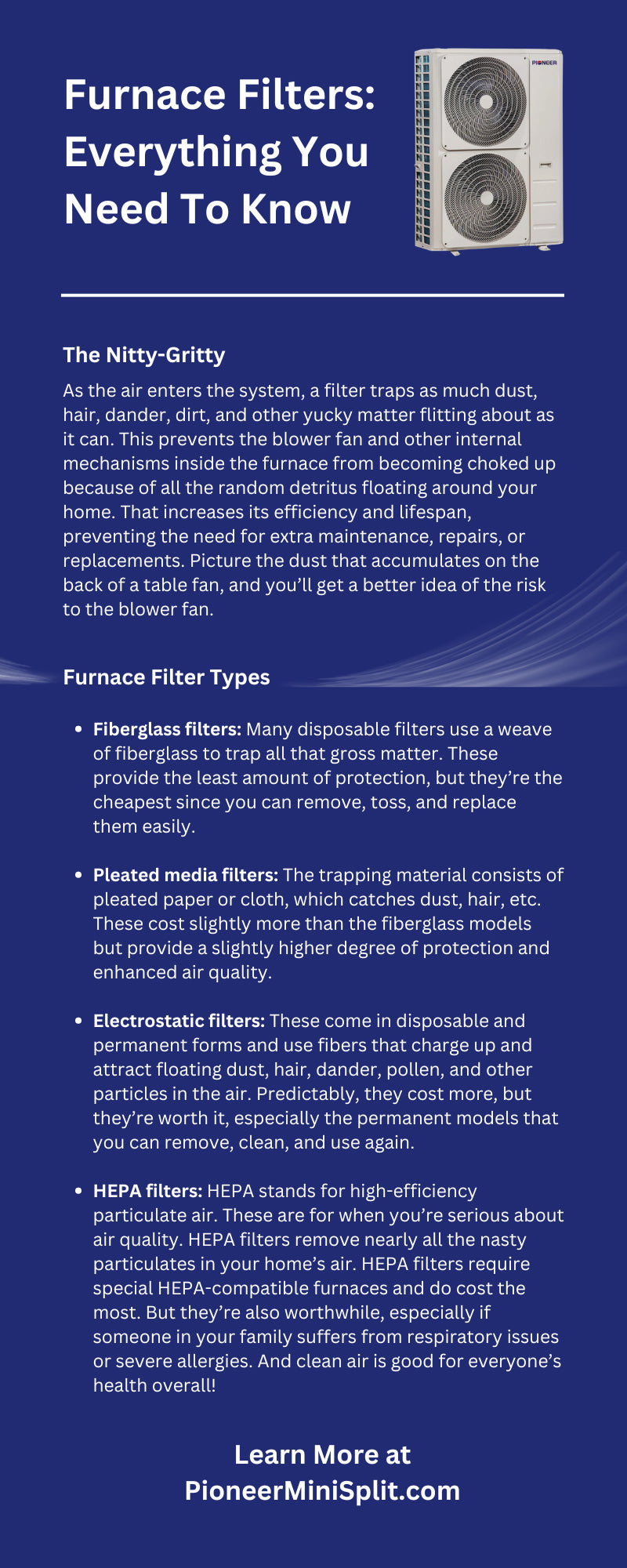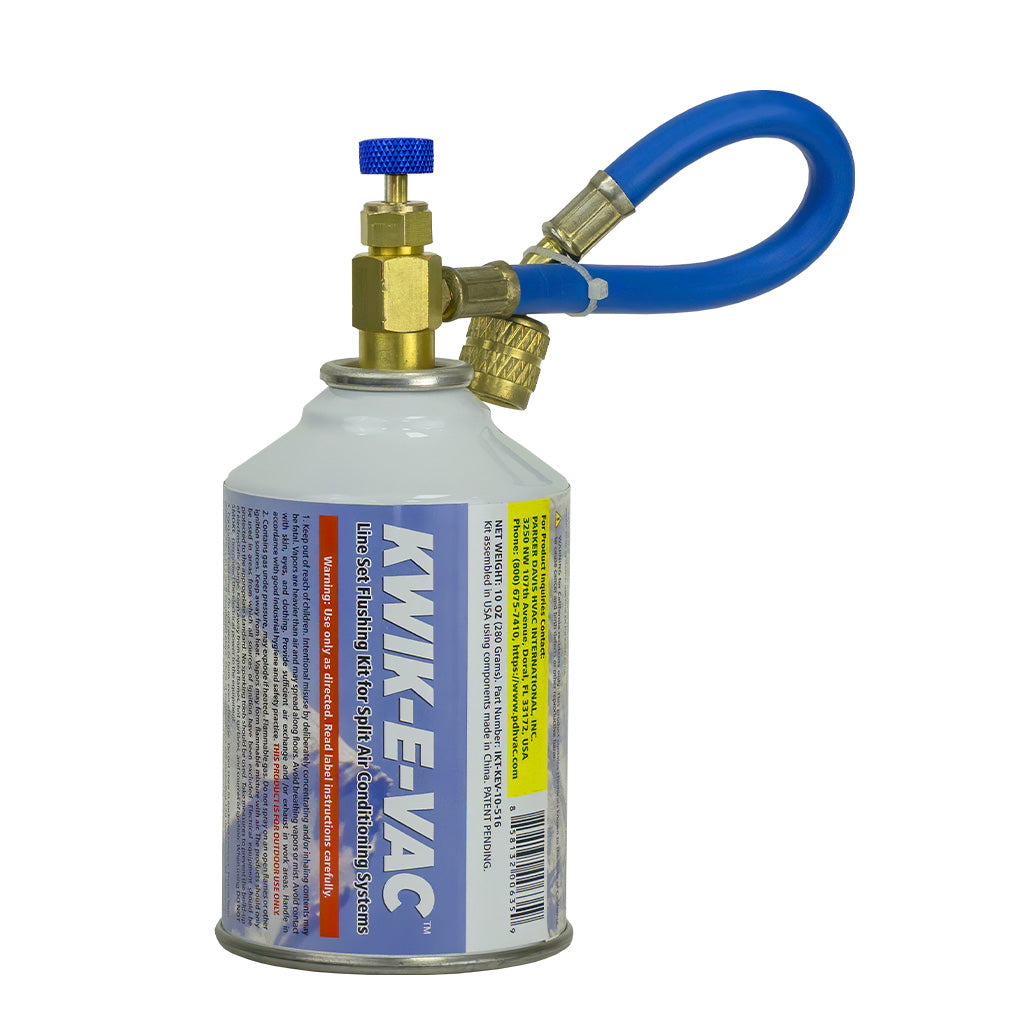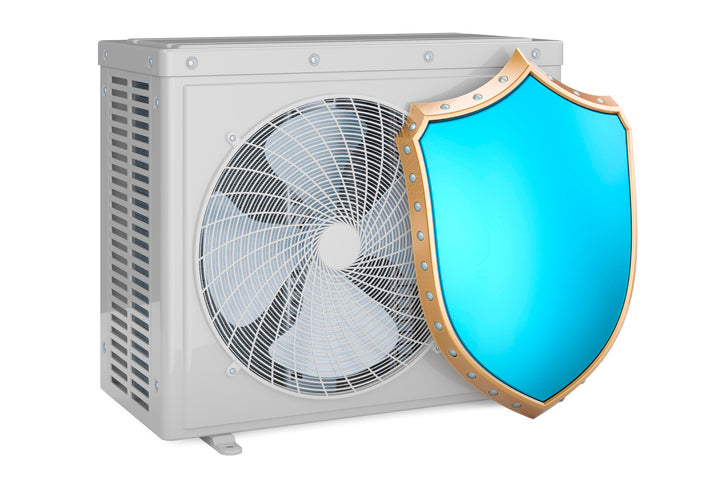Furnace Filters: Everything You Need To Know

Furnace filters exist tucked away inside your heating, ventilation, and air conditioning system. Therefore, it’s easy to forget how important they are. They have the gross and gritty job of ensuring your system “breathes” easily, keeping you warm or cool while also looking after your health. Here’s a basic guide to everything you need to know about furnace filters.
The Nitty-Gritty
Let’s begin with the basics. What do furnace filters do? Of course, they filter your furnace, but there’s more to it than that. As the air enters the system, a filter traps as much dust, hair, dander, dirt, and other yucky matter flitting about as it can. This prevents the blower fan and other internal mechanisms inside the furnace from becoming choked up because of all the random detritus floating around your home. That increases its efficiency and lifespan, preventing the need for extra maintenance, repairs, or replacements. Picture the dust that accumulates on the back of a table fan, and you’ll get a better idea of the risk to the blower fan. Now, how does the furnace filter perform this remarkable duty, day in and day out? It differs.
Furnace Filter Types
Most systems use either disposable or permanent filters. Their composition varies.
- Fiberglass filters: Many disposable filters use a weave of fiberglass to trap all that gross matter. These provide the least amount of protection, but they’re the cheapest since you can remove, toss, and replace them easily.
- Pleated media filters: The trapping material consists of pleated paper or cloth, which catches dust, hair, etc. These cost slightly more than the fiberglass models but provide a slightly higher degree of protection and enhanced air quality.
- Electrostatic filters: These come in disposable and permanent forms and use fibers that charge up and attract floating dust, hair, dander, pollen, and other particles in the air. Predictably, they cost more, but they’re worth it, especially the permanent models that you can remove, clean, and use again.
- HEPA filters: HEPA stands for high-efficiency particulate air. These are for when you’re serious about air quality. HEPA filters remove nearly all the nasty particulates in your home’s air. HEPA filters require special HEPA-compatible furnaces and do cost the most. But they’re also worthwhile, especially if someone in your family suffers from respiratory issues or severe allergies. And clean air is good for everyone’s health overall!
Which Is the Right Filter for You?
Honestly, a pre-installed furnace or HVAC system often already chooses the filter type for you. If you need a different type of filter, you may have to retrofit or replace the furnace. Otherwise, if you’re planning to install a new furnace, consider the filter type. As mentioned, temporary and disposable filters cost less but provide less protection. On the other hand, high-grade permanent filters do an extraordinary job of keeping the bad stuff out of the air but will probably cost quite a bit.
Other things to consider include the presence of a pet that sheds a lot. You should also keep in mind your family’s health, especially if anyone has asthma, allergies, or an immunocompromised system. If you didn’t know, the minimum efficiency reporting value (MERV) is what measures filter efficiency. MERV shows how many articles the filter can catch in the air. It can run from 1 to 20. The higher the MERV, the more efficient the filter. Most homes make do with a MERV of 1 to 4. A MERV of 20 is only in places where pure air is paramount, such as cleanrooms for electronic-device construction and hospital burn units(to keep patients from developing infections). While a MERV of 1 to 4 will do you and your family well, consider upscaling to a rating of 8 to 11 for added benefits.
Taking Care of (Filter) Business
Whether it’s temporary or permanent, your filter still needs regular maintenance. Look for the specifics in your owner’s manual, or ask the installer about what sort of schedule you need to follow for cleaning and more. Leaving your filter to fend for itself will result in impure air and poor performance. Eventually, you’ll have a broken-down furnace that needs a house call from the technician. A good rule of thumb is to have your furnace inspected once a year, especially before a big seasonal change. You must also check the filter every 30 days. Replacing temporary filters or cleaning permanent ones every 90 days is another good habit to get into. During periods of high or low temperatures, look in on your filter more often. If your home faces a blizzard of pet hair, allergens, or viruses, check in more frequently as well.
Extra Tips, Tricks, and Knowledge
Taking care of your furnace filter doesn’t just result in clean air and uninterrupted service but also lower utility bills and a lower risk of damaging the system. Stay on top of it all by noting the following:
- Get the right size filter: This should go without saying, but if you overlook it, you could end up having to return a stack of over- or undersized furnace filters to the hardware store.
- Place a maintenance calendar near the furnace: Don’t put it directly on the furnace surface, mind you. You’ll want to avoid a potential fire hazard. Still, note dates to change or clean the filter and scheduled maintenance. A calendar can also house any other notes about efficiency or the like that could help save money.
- Get a feel for the local air: Do you live in an area with more exhaust or other air pollution? Do you have kids and feel concerned about their developing lungs? Go higher with the MERV rating on your filter.
- Buy in bulk: Don’t buy a single replaceable filter every time you need one. Actually, they often come in packs of five or more. Since they don’t spoil, you should keep a stack handy near the furnace for instant replacement.
That’s everything you need to know about furnace filters. If you have other questions about HVAC solutions in your home, including ducted mini splits, contact us today.








